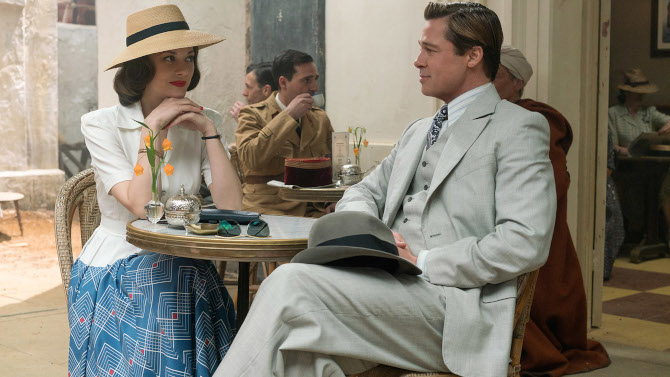
Déjà vu Dalliance
Channeling the mesmeric movies churned out by the studio system back in the 1930s and 40s, Allied (2016), directed by Robert Zemeckis, channels the likes of Morocco, Casablanca, Across the Pacific, Gilda, To Have and Have Not, and numerous others – attempting to find a spark from the classic themes of melodrama, romance, suspense and the epic nature of the annals of the cinematic past, with quite successful results. Set the year Casablanca and Across the Pacific were released – 1942, the story in fact starts in Morocco, with recently parachuted in Canadian spy Max Vatan (Brad Pitt) meeting up with another undercover agent, Marianne Beauséjour (Marion Cotillard), who will be pretending to be his wife.
-

We Will, We Will Rock You
Bohemian RhapsodyFebruary 2, 2019In my recollection, there has never been an Academy Award Best Picture nominee as contentious as this year’s Bohemian Rhapsody. With issues arising from the onset (supposed disputes during production leading to the film’s director, Bryan Singer, being replaced – Dexter Fletcher took over about two thirds of the way through, though Singer still holds the credit of director), it has since received mixed reviews from critics (with a measly 62% fresh rating on Rotten Tomatoes – extremely low for a Best Picture nominee), yet has been a huge box office success (already having earned over 800 million dollars, most fans have loved it, though there are a vocal group of naysayers). . . the most recent twist – the movie surprisingly took home Best Motion Picture - Drama at the Golden Globes, placing it in a rather intriguing position leading into the upcoming Oscars. A last note, a scene from the film with rather excessive editing has been spreading around the internet (look it up to get an idea of some peoples’ thoughts). The tale of the iconic rock band Queen, the narrative begins all the way back in 1970, wrapping at the band’s Live Aid performance in 1985. The biopic delves into all of the areas one would expect. . . the formation of the group, consisting of singer Freddie Mercury (Rami Malek), guitarist Brian May (Gwilym Lee), bassist John Deacon (Joseph Mazzello), and drummer Roger Taylor (Ben Hardy), their unique and unified way of making music, their dealings with their manager, John Reid (Aiden Gillen), lawyer, Jim Beach (Tom Hollander), record executive (Mike Myers – a nice casting touch, considering the classic Bohemian Rhapsody scene found in Wayne’s World), as well as groupies, their meteoric rise, subsequent trials and tribulations, and of course, the love that grows and fades, as well as the hate and disdain that builds up over the years (after all, what do you expect when rock star egos are involved?).
-
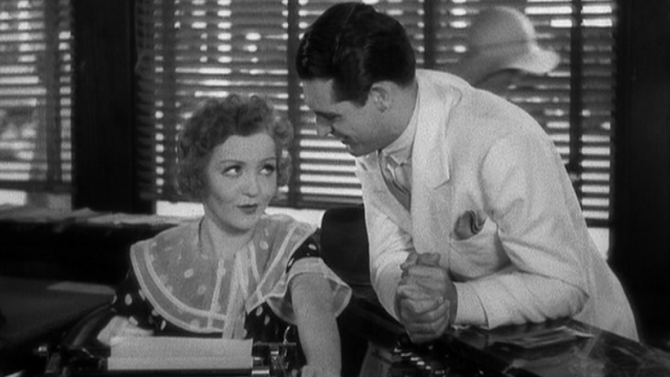
Rumour Mill
Hot SaturdayJanuary 20, 2019A film that gives you an excellent idea of how partying has changed, and not, 1932's Hot Saturday, directed by William A. Seiter, is an American pre-Code motion picture that pushed the moral boundaries of the time, or as the tagline put it, “They called me ‘BAD’_ So I tried to live up to my name!”. Following Ruth Brock (Nancy Carroll) , she is a young bank teller, a working girl and morally-minded flirt – loving daughter of a cigar smoking ne-er-do-well (William Collier Sr.) and a taskmaster of a mother (Jane Darwell). Living in the little locale of Maryville, it is an example of gossipy, small-town America.
-
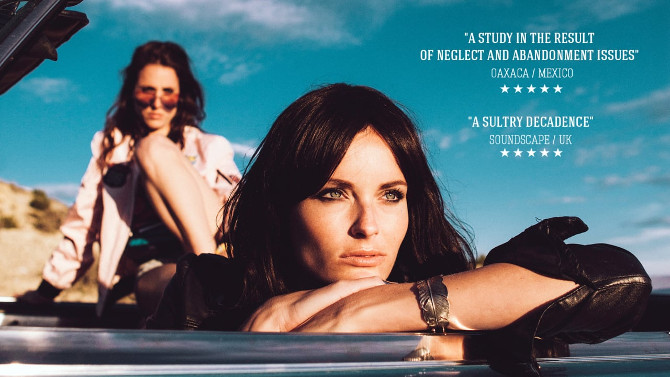
I’m On the Highway to Hell
I Will Crush You and Go to HellJanuary 13, 2019“You have brains in your head. You have feet in your shoes. You can steer yourself any direction you choose.” – Oh, the Places You’ll Go! By Dr. Seuss. A classic tale from the one and only, a positive story often gifted to those who are on their way after graduating. . . but, what happens if you take the wrong path, or as the master word twister so cheekily put it, “You can get so confused that you’ll start in a race down long wiggled roads at a break-neck pace and grind on for miles cross weirdish wild space, head, I fear, toward a most useless place. . .”, or, as the title of today’s short film puts it, I Will Crush You and Go to Hell (2016). Co-written and directed by the team of Fabio Soares and Célia Paysan, the twenty-two minute short is actually, in essence, a back door pilot used as a teaser in order to make a feature length film (full warning, no ending as of yet).
-
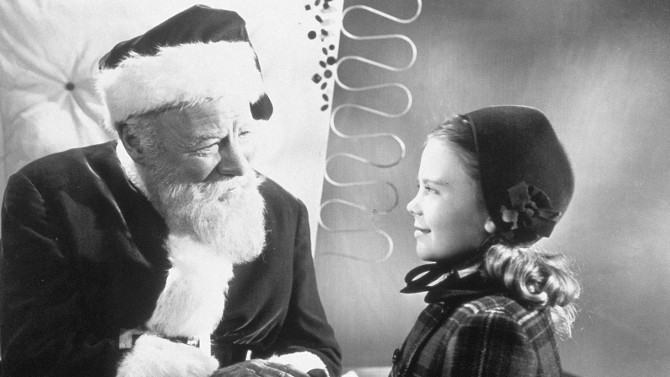
I Believe
Miracle on 34th StreetDecember 23, 2018A Christmas movie that is truly special has that moment. . . that specific sequence magically able to transcend the medium – enlivening our spirits, touching our hearts, rejuvenating the soul. . . a bell ringing – it giving an angel its wings; a humbug of a man able to get another chance at really living life; a family, despite all odds, getting home to their young son that has been left home alone; and, in today’s film, though the ending could arguably be it, a woman brings her newly adopted (orphaned) Dutch daughter to see Santa Claus at the mall, as the little girl truly believes she will be able to speak to him – her mother, knowing that he can’t speak the language, is gobsmacked when he starts to talk to her – bringing so much joy to her cherub-like face. Of course, you’ve probably guessed it, I am referencing George Seaton’s 1947 classic Miracle on 34th Street (he both writes and directs). After a drunk Santa is removed from his post during the Macy’s Thanksgiving Day Parade thanks to the complaint of Kris Kringle (Edmund Gwenn – winning an Oscar for the role), methodical event director Doris Walker (Maureen O’Hara) asks the man to don the suit – filmed during the actual parade.
-
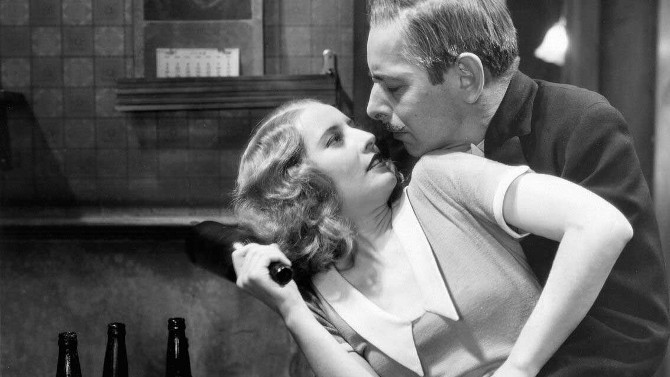
You’ve Got the Cutest Little Baby Face
Baby FaceDecember 12, 2018Arguably one of the most scandalous narratives to come out of the pre-code era, Alfred E. Green’s notorious 1933 romantic drama Baby Face was one of the films that was so very controversial that it ended up giving the Motion Picture Production Code (Hays Code) its bite – the reigning moral guide for the next thirty plus years. With a story from Darryl F. Zanuck (yes, the powerhouse studio head of 20th Century Fox – written under his pseudonym, Mark Canfield), the story follows Lily Powers (Barbara Stanwyck), aptly described by the bawdy tagline – “she had it and made it pay”.
-

Take 5
A Star Is BornDecember 8, 2018Ah, classic Hollywood – no, not one of those gems of yesteryear, rather, I’m talking about their love of remakes. . . specifically, A Star Is Born – this being the fourth time it has been remade (following the 1937 original starring Janet Gaynor and Fredric March, you have the 1954 version with Judy Garland and James Mason, then the 1976 rock musical version featuring Barbra Streisand and Kris Kristofferson, and lastly, at least until this year, was the 2013 Bollywood effort led by Shraddha Kapoor and Aditya Roy Kapur). All sarcastic joking aside, despite this 2018 story having been reworked more times than the excuses students have tried to come up with when showing up to school without their homework, it is one of the main Academy Award hopefuls this awards season. Co-written and directed by Bradley Cooper (his first directorial effort, his co-scribes are Eric Roth – Forrest Gump, and Will Fetters), Cooper himself plays the role of Jackson Maine, a country rocker with an affinity for pill-popping, and, if you notch that up a few more levels, you’ll find his addiction to alcohol.
